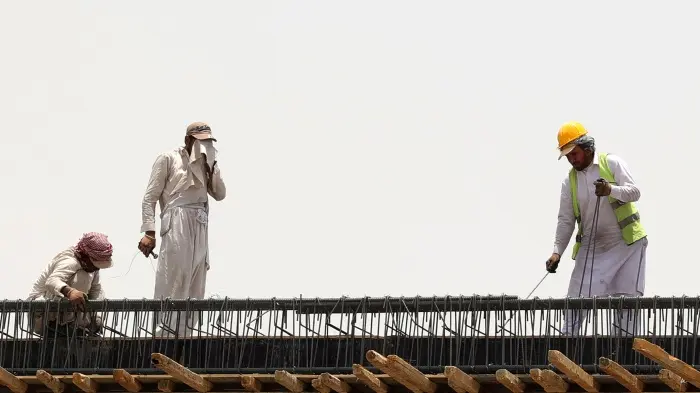A pause that matters
On November 11, 2025, Saudi Arabia’s Ministry of Human Resources and Social Development announced a six-month extension of the grace period for domestic workers who have been reported as absent from their sponsors’ households. The move gives thousands of workers and the families who employ them additional time to correct legal status, complete necessary procedures and, importantly, look for humane solutions that respect the dignity of everyone involved.
What the extension does
The extension allows domestic workers whose status is irregular to regularize their situation through the Musaned platform, the official system Saudi authorities use to manage household labor services. During this period, workers will have the opportunity to apply for status correction, transfer sponsorship where lawful, or make arrangements to leave the Kingdom without immediately facing punitive measures. The stated aim is to reduce the number of people living in legal limbo while modernizing processes that have often been hard to navigate.
Why this matters to real people
Behind the policy language are human lives: women and men who left homes, sometimes after traumatic experiences; employers scrambling to resolve missing staff; and families nervous about the welfare of someone who has been part of their daily life. For many workers, fear of detention, deportation or legal trouble hangs over every decision. For employers, the extension offers a slower, less punitive path to resolving unexpected absences without defaulting to criminalization. The extra months can mean the difference between a rushed, traumatic removal and a more orderly, safer resolution.

A bridge not a fix
This grace period is best understood as a bridge a practical, temporary measure that creates space for paperwork, communication and, ideally, mediation. It does not by itself resolve broader issues in the domestic labor sector: recruitment practices, access to legal advice, wage disputes, and the power imbalance between employers and employees remain. But the extension signals a willingness to prioritize administrative solutions over immediate enforcement, and that shift can lower the stakes for vulnerable people while longer-term reforms catch up.
The platform that will handle corrections
Musaned will be the vehicle for processing status corrections. The platform’s digital tools are meant to simplify procedures and centralize records so that cases can be resolved with more transparency. If used effectively, Musaned can reduce delays, help match workers with legal assistance, and ensure that transfers or exits happen with clear documentation all of which protect both workers and employers.
Practical effects for workers and employers
For a worker, the extension means more time to seek legal counsel, contact family, or find a lawful way to change sponsorship. For employers, it reduces the urgency to take measures that may be harmful or illegal, and gives them time to cooperate formally with authorities. For recruitment agencies and recruitment countries, it provides a clearer window to intervene constructively on repatriation or transfer options. In short, the extension creates breathing room, and breathing room can translate into safer, more just outcomes.

Human stories that echo the policy
Across households and communities, simple scenarios illuminate why policy details matter: a mother who relies on a helper to care for an infant and cannot afford abrupt replacement; a worker who fled an abusive situation but lacks documents to travel home; siblings separated across borders awaiting paperwork. When deadlines are tight, decisions are often rushed. When deadlines are extended with care, people can access support networks, verify facts, and make less damaging choices.
The emotional economy of time
Time is not neutral. An extension buys not only administrative hours but also emotional space: room to breathe, to explain, to reconcile, or to plan a safe exit. Policymakers often focus on logistics, but human-centered approaches recognize that reducing panic and haste can directly reduce harm. For many affected individuals, the extra six months could mean healing, reconciliation, or a controlled return home rather than a chaotic departure.
Questions the extension raises
While welcome to many, the extension raises questions that deserve attention. Will access to legal aid increase alongside the new timeline? Will Musaned be staffed and resourced to handle a surge of cases fairly and quickly? How will authorities ensure that workers are not coerced into decisions during this period? Answers require follow-through: outreach, clear information in multiple languages, and oversight that keeps the process humane and transparent.
What constructive next steps look like
A humane response during the extension would include accessible hotlines, community outreach to explain options, transportation support for safe returns, and partnerships with NGOs that can provide counseling and legal help. Employers and recruitment agencies should be encouraged, and where appropriate, required, to cooperate with efforts to regularize status or arrange dignified repatriation. Improving data sharing between relevant ministries and foreign missions can also accelerate solutions without compromising privacy or safety.
Why this is also a moment for reform
This policy window is an opportunity to link short-term relief with longer-term reform. Systemic change such as fair recruitment standards, enforceable employment contracts, monitoring of employers, and better access to justice will take more than a grace period. But extensions like this can establish precedents for treating domestic workers as rights-bearing individuals rather than administrative problems, and they can build political will for deeper protections.
A call for empathy in practice
Humanizing immigration and labor policy means more than good headlines; it means embedding empathy into the mechanics of state systems. Practical steps that reflect empathy include plain-language guidance translated into workers’ native languages, fast-tracked caseworkers trained in trauma-aware interviewing, confidential reporting channels for abuse, and guarantees that corrected status is documented clearly to prevent future vulnerability.
The bigger picture
Saudi Arabia’s labor landscape is changing rapidly, with broader labor reforms underway. Temporary measures like this six-month extension are part of a patchwork of adjustments aimed at modernizing how the Kingdom manages a large and diverse workforce. Measured against that backdrop, the extension is meaningful, an administrative remedy that, if paired with genuine protections and accountability, can reduce suffering today and contribute to a fairer system tomorrow.
Closing thought: time as compassion
Policies often come clothed in bureaucratic language, but their true measure is the human impact. Extending a grace period may seem technical, yet it can multiply kindness in lived experience more truthful conversations, safer returns, less fear, and, sometimes, a chance for healing. If this interval is used well, it will do more than fix paperwork: it will show that time can be an instrument of compassion.
Do follow Gulf Magazine on Instagram.
Also Read – Saudi Arabia Deports 12,000 Migrants in Major Crackdown to Protect National Jobs



